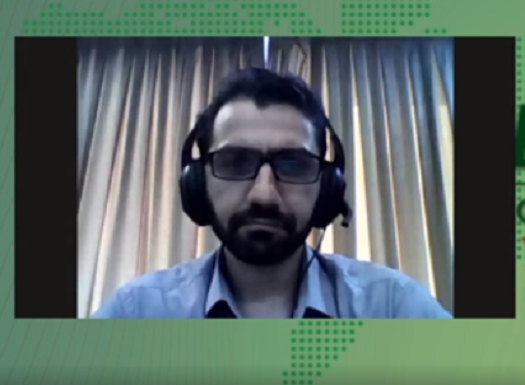Mohammad Reza Hasanabadi, Researcher at IRIB R&D spoke about The Object-based approach in Next Generation Audio on the third day of ABU DBS 2021.
It was a part of the session titled Advanced Audio & Streaming Technologies, moderated by Dr Les Sabel, Chair, WorldDAB Asia Pacific Technical Group.
Hasanabadi is currently pursuing a Ph.D. in Electrical Engineering at Shahid Beheshti University (SBU), Iran. He joined IRIB R&D in 2019 and since then he is focusing on audio-related broadcast projects. His research interests include audio and speech processing, coding, and estimation theory.
Object Based Audio (OBA) deals with sound sources as separate objects. It is at the heart of Next Generation Audio (NGA), which allows personalisation – to choose what and how to hear, like dialogue enhancement, immersive 3D Audio and advanced interaction with audio objects.
Conventional approach to audio is channel-based, where signals come from the microphone, to a fixed mixer and to the audience. In OBA, there are two extra parts in the process – meta data and renderer.
Meta data is data in vector form showing the position of the signal and renderer helps choose between signals to chose between objects. Typical Serial Digital Interface (SDI) consists of up to 16 channels, it has the capability to inject the signals and meta data.
MPEG-H audio and Dolby AC-4 are OBA codecs. AC-4 was first installed in May 2020, whereas MPEG-H has been in South Korea since 2017, but both offer possibilities of hardware and software-based production, authoring and encoding. 80% of digital TVs in Europe have AC-4, while MPEG-H is there in China and South Korea.
The pros of OBA are that it offers an immersive experience, better user control and a variety of setups. The cons include the increase complexity due to the use of a renderer which also adds a cost to the user and results in more power consumption.
Subscribe to the radioinfo podcast on these platforms: Acast, Apple iTunes Podcasts, Podtail, Spotify, Google Podcasts, TuneIn, or wherever you get your podcasts.


